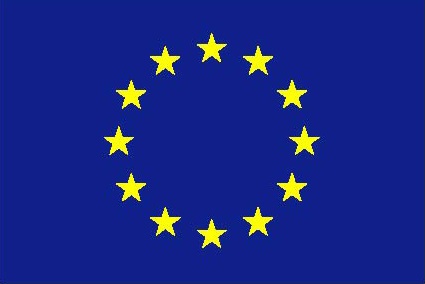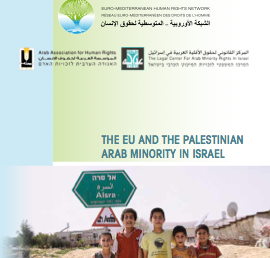UN Human Rights Committee criticizes Israel's violations of civil and political rights of Palestinians in Israel and the OPT
On 30 October 2014, the UN Human Rights Committee (HRC) issued its concluding observations on Israel, following its latest review session in Geneva on 20 October 2014. Representatives of Adalah, together with other partner human rights organizations, attended the session.
The Committee raised serious concerns regarding Israel's lack of compliance with the International Covenant on Civil and Political Rights (ICCPR), which Israel ratified in 1991. In particular, the Committee highlighted many violations concerning the rights of Palestinian citizens of Israel and Palestinians in the Occupied Palestinian Territory (OPT), which were raised by Adalah and its partners in their reports.
Adalah submitted three reports to the UN HRC in response to the Committee's questions and Israel's replies, on Israel’s lack of compliance with the ICCPR on the subjects of: 1) the rights of Palestinian citizens of Israel; 2) the rights of Arab Bedouin citizens in the Naqab/Negev (jointly with the Negev Coexistence Forum); and 3) Israel's use of torture and cruel, inhuman and degrading treatment of Palestinian prisoners/detainees and Palestinians living in the OPT (jointly with the Al Mezan Center for Human Rights and Physicians for Human Rights-Israel).
Highlights of the HRC's concluding observations regarding the rights of Palestinian citizens include calling upon Israel to:
- "explicitly incorporate the principle of equality and non-discrimination" into its Basic Law: Human Dignity and Liberty, and to "review all laws discriminating against Palestinian citizens of Israel as well as ensure that any future legislation is fully compatible with the principle of equality and non-discrimination" (CO #7);
- Increase its efforts to achieve "equitable representation" in the Israeli civil governmental service of Palestinian citizens, including in decision-making positions and bodies (CO #8);
- End its policies of punitive home demolitions, discriminatory planning and zoning, and forcible transfer and evictions of Arab Bedouin citizens in the Naqab; in particular, Israel should withdraw the Prawer Plan and its legislative arm, ensure that Bedouin citizens are fully included in the consultative process of their fate, and respect their rights to their ancestral land and their way of life (CO #9);
- Revoke the Citizenship and Entry into Israel Law, which bans family unification between Palestinian citizens of Israel and Palestinians in the OPT (CO #21);
- Protect the rights to freedom of expression and association, and address any restrictions on these rights such as the "Anti-Boycott Law" and the "Foreign Funding Law" (aka "NGO Funding Law") (CO #22).
Highlights of the HRC's concluding observations regarding the rights of Palestinians in the OPT include calling upon Israel to:
- Acknowledge the applicability of its obligations under international humanitarian law as an occupying power (CO #5);
- Address the serious flaws in its investigative and justice mechanisms by implementing the second report of the Turkel Commission ("Turkel Part II"), investigating all human rights violations committed particularly during Israel's military offensives in Gaza in 2008/9, 2012 and 2014, ensuring that perpetrators (including those in command positions) are prosecuted, and that victims of human rights abuses are provided access to effective legal and financial remedies (CO #6);
- End its policies of punitive home demolitions, discriminatory planning and zoning, and forcible transfer and evictions of Palestinians in the occupied West Bank including East Jerusalem (CO #9);
- End the practice of administrative detention against Palestinians and review its legislation maintaining Israel's "state of emergency" (CO #10);
- Ensure that its proposed "Fight against Terrorism Bill" (aka "Anti-Terrorism Bill") fully complies with the provisions of the ICCPR (CO #11);
- Lift the blockade of the Gaza Strip and "provide unrestricted access for the provision of urgent humanitarian assistance and construction materials needed for civilian reconstruction efforts", as well as ensure that any restrictions on the freedom of movement of civilians and goods in and out of Gaza are consistent with the ICCPR (CO #12);
- Prevent and investigate any incidents of excessive use of force by Israeli security forces against Palestinians (CO #13)
- "explicitly prohibit" torture and ill-treatment (physical and psychological) through legislation, the end of the use of "necessity" as a justification for torture, the end of the use of "moderate physical pressure" as an interrogation method, and the provision of audio/video recordings of interrogations of security prisoners (CO #14);
- "eradicate torture and ill-treatment against adult and child detainees and carry out prompt, thorough, effective, independent and impartial investigations into al allegations of torture and ill-treatment", and to hold perpetrators to account and ensure victims are given effective remedies including compensation (CO #15);
- Ensure that Israel's arrest and detention of Palestinian children complies with the ICCPR, including its use only as a last resort, for short duration, with due process, respect for the child's dignity, and other basic rights of the child (CO #19)
For more information:
- UN HRC Concluding Observations on Israel, October 2014
- Adalah report to HRC on Palestinian citizens of Israel
- Adalah and NCF report to HRC on Arab Bedouin citizens in the Naqab
- Adalah, Al Mezan and PHR-I report to HRC on Torture and Ill-Treatment
- Other submissions to UN HRC by organizations

PROJECTS FUNDED BY THE EUROPEAN UNION:
JOINT PROJECT OF ADALAH AND NEGEV COEXISTENCE FORUM, and JOINT PROJECT OF ADALAH, PHYSICIANS FOR HUMAN RIGHTS-ISRAEL AND AL MEZAN (GAZA)
The contents of the reports and the advocacy are the sole responsibility of Adalah, The Negev Coexistence Forum, Al Mezan and PHR-I, and under no circumstances should be regarded as reflecting the position of the European Union or any other donor to Adalah.
















